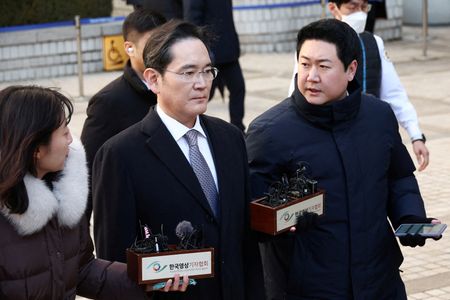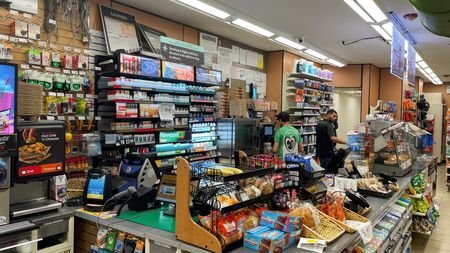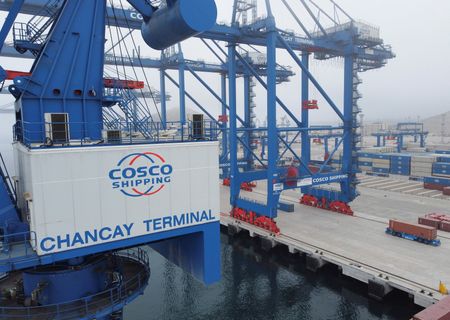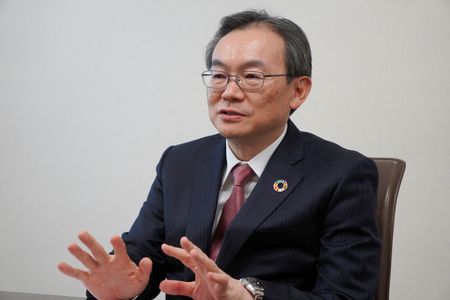By Anton Bridge and David Dolan
TOKYO (Reuters) -Japanese retailer Seven & i Holdings has again lived up to a reputation for shrugging off investor calls for better returns. This time, it also provides a reminder that even amid a corporate governance overhaul, big-ticket acquisitions are far from easy in Japan.
Canadian retailer Alimentation Couche-Tard on Thursday pulled its $46 billion bid to buy the 7-Eleven owner, citing what it described as a lack of constructive engagement from the Japanese retail giant, which it accused of a “calculated campaign of obfuscation and delay”.
Seven & i said it was disappointed by Couche-Tard’s decision, adding that it disagreed with what it called “numerous mischaracterisations”. An acquisition by the owner of Circle-K convenience stores would have marked the largest foreign takeover by a Japanese company in history and created a global retail powerhouse.
Japanese companies are now under pressure to improve shareholder returns and to consider credible acquisition offers, thanks to a regulatory overhaul that has ignited foreign investor interest and helped propel the Tokyo market to a series of record highs.
Yet it remains a tall order for overseas firms to snap up some of Japan’s biggest, and most conservative, companies, especially those where management is backed by an influential founding family.
“From the start, Seven & i was obstructive,” said Nicholas Smith, a veteran Japan strategist at CLSA Securities. “The whole saga seemed to be more about protecting management lifestyles than generating returns for shareholders, which have been poor.
“I regard it as an issue specific to Seven & i, rather than representing the overall trend in Japan.”
In many ways, Seven & i has all the traits of Japan’s typical business success stories: a seemingly endless appetite for hard work and innovation, and an ability to take an overseas creation and elevate it by focusing relentlessly on details and consumer satisfaction.
In Seven & i’s case, it turned a humble U.S. chain offering cigarettes and fizzy drinks into an oasis of fresh food and packaged meals where customers could also pay their bills, send packages and buy concert tickets. But like other Japanese innovators, it also lost its way after years of breakneck growth – and attracted calls for change.
Artisan Partners and ValueAct Capital have been among the shareholders that have called for Seven & i to shed what they said was bloat. Investors say the company has been dragging its feet for years.
“It’s sad. It sets a bad precedent for capital and M&A markets in Japan as it shows you can drag out the process to avoid being bought out,” said one Seven & i investor, who spoke on condition of anonymity, given the sensitivity of the issue. “We may look at shrinking our positions in large-cap potential acquisition targets after this.”
M&A BOOM
Foreign firms, particularly private equity, are increasingly active in Japan. Seven & i in March said it would sell its superstores and other peripheral businesses to Bain Capital for some $5.5 billion, as it looked to boost returns and fend off Couche-Tard.
Japanese mergers and acquisitions activity (M&A) hit a record $232 billion in the first six months of this year, helping drive a rebound in Asia, according to LSEG.
More Japanese companies, especially smaller ones, increasingly realise they need to change, especially given the stark economic outlook, said Kei Okamura, managing director at asset manager Neuberger Berman in Tokyo.
Had Couche-Tard approached a smaller Japanese company with a different management outlook, they would probably have had a different response, he said.
“Inflation, higher interest rates, the yen. All of these things are changing and it’s really upending the way businesses operate. They can no longer be complacent and ignore these potential offers to scale up and create shareholder value.”
(Reporting by Anton Bridge and David Dolan; Editing by Kate Mayberry)








